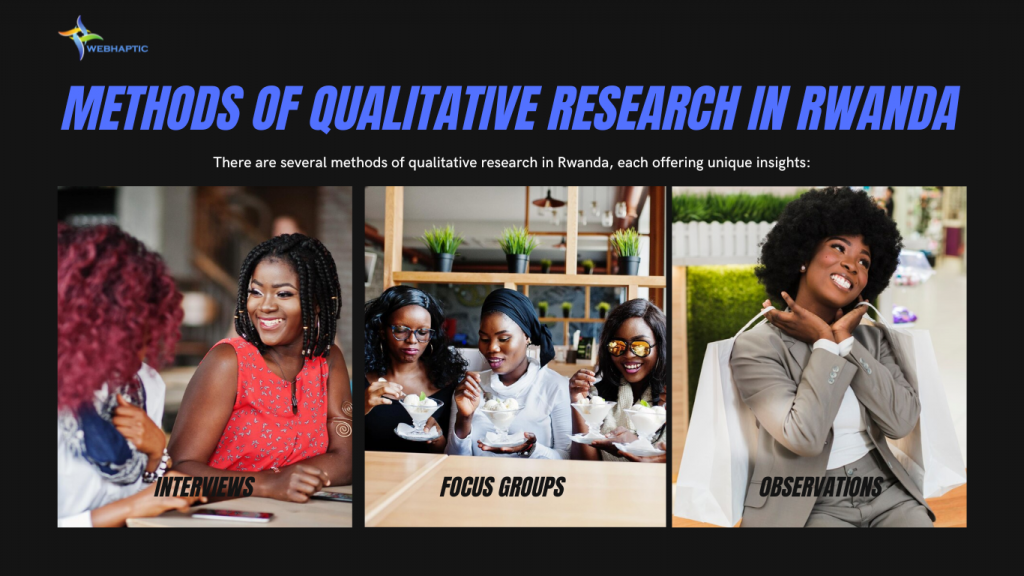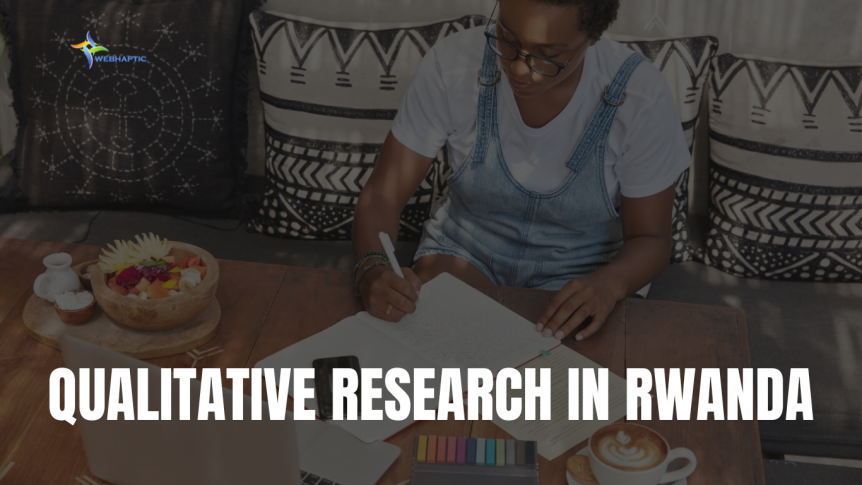Qualitative research in Rwanda is pivotal for informed business decisions. It provides deep insights into consumer behaviors and preferences. Companies leverage qualitative research to understand market dynamics, cultural nuances, and customer needs. This understanding is crucial for crafting effective business strategies and achieving sustainable growth.
Understanding Qualitative Research in Rwanda
Qualitative research in Rwanda involves collecting non-numerical data through methods like interviews, focus groups, and observations. It delves into the “why” and “how” of consumer behavior. This type of research is essential for businesses aiming to align their products and services with the local market.
The Role of Cultural Context
In Rwanda, cultural context plays a significant role in shaping consumer behavior. Qualitative research helps businesses uncover cultural nuances that quantitative methods might overlook. Understanding these subtleties enables companies to create culturally relevant products and marketing campaigns.
Methods of Qualitative Research in Rwanda

There are several methods of qualitative research in Rwanda, each offering unique insights:
- Interviews: In-depth interviews provide detailed information about individual experiences and opinions.
- Focus Groups: These group discussions reveal collective viewpoints and consumer sentiments.
- Observations: Observing consumer behavior in natural settings provides real-time insights.
Interviews: A Deep Dive
Interviews are a cornerstone of qualitative research in Rwanda. They allow researchers to explore participants’ thoughts and feelings in-depth. These insights are invaluable for businesses looking to understand their target audience better.
Focus Groups: Collective Insights
Focus groups offer a dynamic platform for discussion. They help businesses gather diverse perspectives on their products and services. This method is particularly useful for understanding group dynamics and social influences on consumer behavior.
Benefits of Qualitative Research in Rwanda
Qualitative research in Rwanda offers numerous benefits for businesses:
- In-Depth Understanding: It provides a deeper understanding of consumer motivations and preferences.
- Identifying Trends: Businesses can identify emerging trends and market opportunities.
- Improving Products: Insights from qualitative research help in refining products and services to meet local needs.
- Effective Marketing: Companies can develop more effective marketing strategies based on consumer insights.
Driving Product Development
Qualitative research in Rwanda is instrumental in product development. By understanding consumer needs and preferences, businesses can design products that resonate with the local market. This approach reduces the risk of product failure and increases the chances of success.
Enhancing Customer Experience
Customer experience is crucial for business success. Qualitative research helps companies understand pain points and areas for improvement. This knowledge allows businesses to enhance their customer service and build stronger relationships with their clients.
Case Studies: Success Stories
Several companies have successfully used qualitative research in Rwanda to drive their business decisions:
Case Study 1: A Beverage Company
A beverage company used focus groups to understand local taste preferences. The insights gained helped them develop new flavors tailored to the Rwandan market. As a result, their sales increased significantly.
Case Study 2: A Tech Start-Up
A tech start-up conducted in-depth interviews to explore user experiences with their app. The feedback received led to significant improvements in the app’s design and functionality. This enhanced user satisfaction and boosted their user base.
Implementing Qualitative Research in Rwanda
Implementing qualitative research in Rwanda requires careful planning and execution. Here are some steps businesses can follow:
- Define Objectives: Clearly define the research objectives and what you aim to achieve.
- Choose Methods: Select the appropriate qualitative research methods based on your objectives.
- Recruit Participants: Identify and recruit participants who represent your target audience.
- Collect Data: Gather data using the chosen methods, ensuring to capture detailed insights.
- Analyze Data: Analyze the data to identify patterns and key insights.
- Apply Insights: Use the insights gained to inform business decisions and strategies.
Recruiting Participants
Recruiting the right participants is crucial for qualitative research in Rwanda. Participants should represent the target audience to ensure the insights are relevant. Incentives can help in motivating participants to engage in the research.
Analyzing Data
Data analysis is a critical step in qualitative research. It involves identifying patterns, themes, and key insights from the collected data. This process requires careful attention to detail and a deep understanding of the research context.
Challenges and Solutions
Conducting qualitative research in Rwanda comes with its challenges. However, these can be addressed with the right strategies:
Challenge 1: Language Barriers
Language barriers can pose a challenge in qualitative research. To overcome this, businesses can use local languages and translators. This ensures clear communication and accurate data collection.
Challenge 2: Cultural Sensitivity
Cultural sensitivity is crucial in qualitative research. Researchers must be aware of cultural norms and practices to avoid misunderstandings. Training and collaboration with local experts can help in navigating cultural nuances.
Conclusion: The Future of Qualitative Research in Rwanda
Qualitative research in Rwanda is a powerful tool for businesses. It provides deep insights into consumer behavior, helping companies make informed decisions. As Rwanda’s economy continues to grow, the importance of qualitative research will only increase. Businesses that invest in qualitative research will be better positioned to understand their market, meet consumer needs, and achieve long-term success.
In conclusion, qualitative research in Rwanda is essential for driving business decisions. It offers in-depth understanding, identifies trends, and improves products. Despite challenges, the benefits far outweigh the costs. By embracing qualitative research, businesses can unlock new opportunities and thrive in the Rwandan market.

